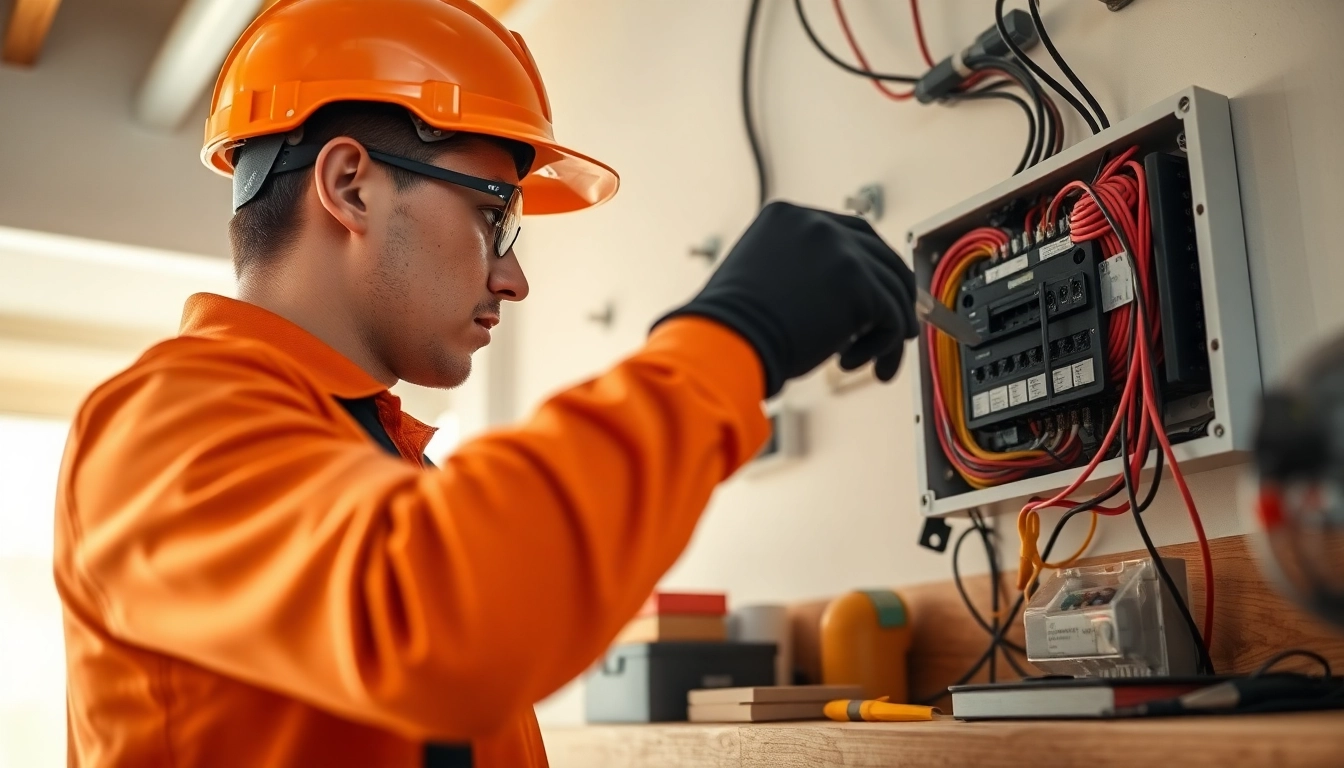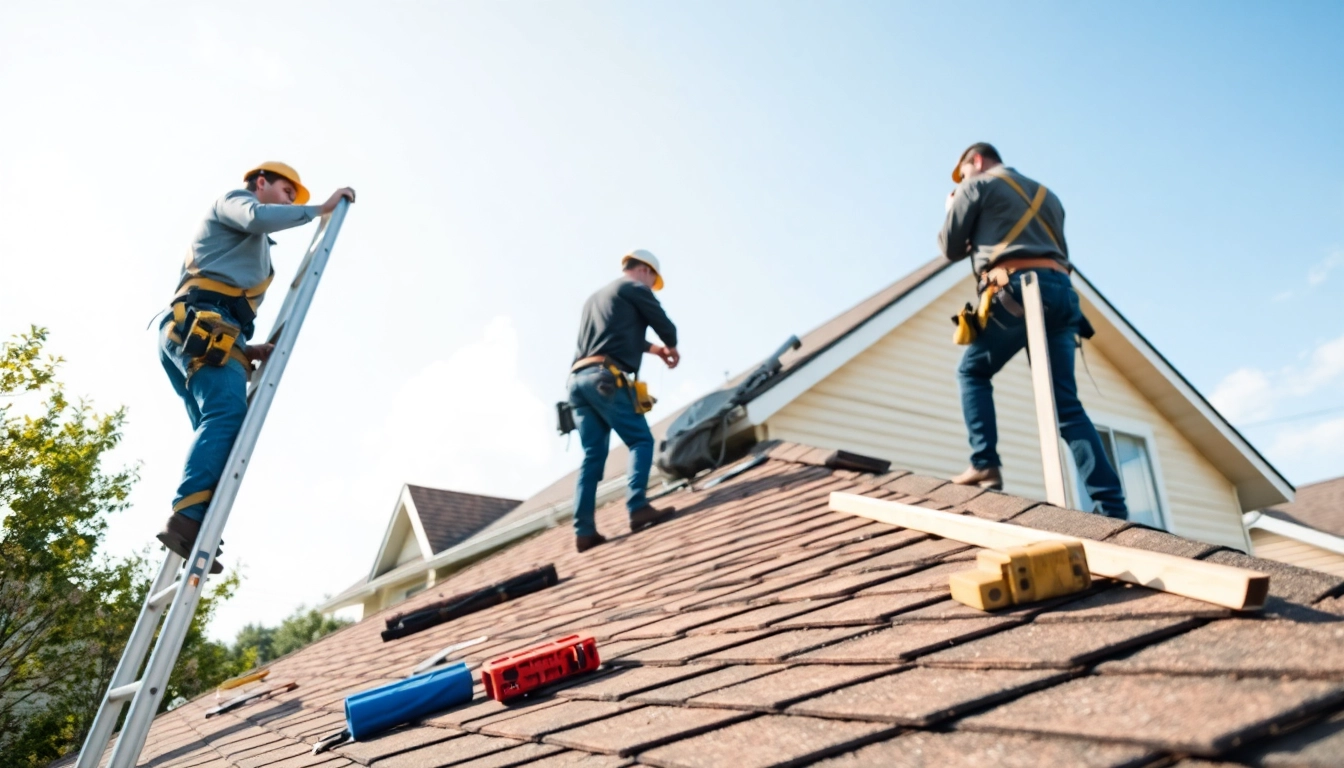

Comprehensive Guide to Electrical Service: Essential Information for Homeowners
Understanding Electrical Service Essentials
Electrical service is a crucial component of any modern home or business, providing the necessary energy to power appliances, lighting, and other technologies that we rely on daily. Understanding what electrical service entails is fundamental for any property owner, whether you are purchasing a new home, renovating your existing one, or simply looking to maintain electrical systems efficiently. This comprehensive guide aims to provide insights into the essentials of electrical service, emphasizing the importance of reliable service and the various types of electrical services available.
What is Electrical Service?
Electrical service refers to the supply and installation of electrical energy, as well as the associated systems that distribute that energy within a building. This service typically includes the following elements:
- Power Supply: This is the main source of electricity for the building, usually connected to the local electrical grid.
- Distribution System: This includes the wiring, circuit breakers, and electrical panels that deliver electricity to various outlets and appliances.
- Electrical Installations: This encompasses the installation of lighting, switches, outlets, and other electrical devices.
- Maintenance and Repairs: Ensuring that electrical systems operate safely and effectively through regular inspections and repairs is a key part of electrical service.
The Importance of Reliable Electrical Service
Reliable electrical service is vital for several reasons:
- Safety: Faulty electrical systems can pose serious safety risks, including fire hazards and electric shocks. Regular maintenance ensures compliance with safety standards.
- Efficiency: An efficient electrical system reduces energy consumption, leading to lower utility bills and a smaller environmental footprint.
- Property Value: Well-maintained electrical systems can enhance the value of a property by ensuring that it meets modern safety and efficiency standards.
- Comfort: A reliable electrical service ensures that all appliances and systems function properly, contributing to overall comfort within the home or business.
Common Types of Electrical Services
Electrical services can vary widely based on the needs of the client and the specific requirements of the building. Some of the most common electrical services include the following:
- Installation and Upgrades: This includes installing new electrical systems or upgrading existing ones, such as electrical panels or circuit breakers.
- Wiring and Rewiring: This involves installing new wiring for new construction or replacing outdated wiring in older buildings.
- Lighting Design and Installation: Professionals help design and install lighting systems that improve aesthetics and functionality.
- Electrical Inspections: These inspections ensure that a building’s electrical system is safe and adheres to the National Electrical Code (NEC) standards.
- Emergency Electrical Services: Many service providers offer 24/7 emergency services to address urgent electrical issues.
Safety Standards and Regulations in Electrical Service
Understanding the safety standards and regulations governing electrical service is essential for both service providers and consumers. Compliance not only ensures safety but also protects property investments.
Understanding Electrical Codes
Electrical codes are legal standards that govern electrical installations and maintenance. The most widely recognized code in the United States is the National Electrical Code (NEC). It covers:
- Wiring methods and materials
- Overcurrent protection and grounding requirements
- Installation requirements for electrical panels and service points
- Specific guidelines for residential, commercial, and industrial applications
Local jurisdictions may have additional codes reflecting specific community needs, which must also be adhered to during electrical work.
Importance of Hiring Licensed Electricians
Hiring a licensed electrician is paramount for several reasons:
- Compliance: Licensed electricians are trained to comply with local electrical codes and regulations, reducing the risk of unsafe installations.
- Quality Workmanship: Professionals have the skills to perform quality work, minimizing the likelihood of future electrical problems.
- Insurance and Liability: Licensed electricians typically carry insurance, offering protection in case of accidents during the job.
- Warranty Coverage: Professional work often includes warranties, providing reassurance against future repairs.
Safety Tips for Home Electrical Systems
Ensuring the safety of home electrical systems involves several proactive measures:
- Regular Inspections: Schedule annual inspections with a licensed electrician to identify potential hazards.
- Use Surge Protectors: Protect sensitive equipment from voltage spikes with surge protectors.
- Avoid Overloading Circuits: Be mindful of energy use to avoid overheating wires, which can lead to fires.
- Be Cautious with DIY Repairs: While some small fixes may seem manageable, it’s advisable to consult a professional for comprehensive electrical work.
- Check Electrical Equipment: Regularly inspect cords and plugs for damage and replace anything that looks worn or frayed.
Common Electrical Service Problems and Solutions
As homes age or electrical systems become overloaded, issues can arise. Identifying these problems early and knowing how to address them can save time and money.
Identifying Electrical Issues Early
Common signs of electrical issues include:
- Frequent tripping of circuit breakers
- Flickering or dimming lights
- Buzzing sounds from outlets or appliances
- Burning smells or scorch marks on outlets
- Devices that do not power on or charge properly
Being aware of these indicators can prompt timely inspections and repairs, preventing accidents and costly system failures.
Common Repairs in Electrical Services
Households may encounter various electrical issues that require professional repair. Here are some frequent repairs that electricians handle:
- Replacing Outdated Panels: Old or damaged electrical panels may need to be replaced to meet current power demands safely.
- Fixing Wiring Issues: Worn or faulty wiring needs to be repaired or replaced to eliminate hazards and ensure reliability.
- Installing GFCI Outlets: Ground Fault Circuit Interrupter outlets are crucial in areas like kitchens and bathrooms to prevent shocks.
- Light Fixture Installation: Whether matching existing decor or adding ambiance, upgrading light fixtures can enhance a space’s appearance.
Preventive Maintenance for Electrical Systems
Preventive maintenance can extend the life of electrical systems and improve safety. Key strategies include:
- Scheduling Routine Inspections: Having a qualified electrician conduct regular inspections ensures any potential problems are caught early.
- Testing Smoke Detectors: Regularly testing and replacing batteries in smoke alarms is crucial for fire safety.
- Upgrading Outdated Equipment: Consider updating old equipment to more energy-efficient options that comply with current safety standards.
- Implementing a Home Energy Audit: A home energy audit can reveal inefficiencies in your electrical system and identify areas for improvement.
How to Select an Electrical Service Provider
Choosing the right electrical service provider can significantly impact the quality of work you receive. Here’s what to consider when selecting an electrician:
What to Look for in an Electrician
When searching for an electrician, ensure they possess the following:
- Licensing: Always verify that the electrician holds a valid license in your area.
- Experience: Look for professionals with extensive experience in the type of work you require.
- Insurance: A reputable electrician should also have adequate insurance to cover any potential issues.
- Certifications: Additional certifications can demonstrate an electrician’s commitment to ongoing education and adherence to safety standards.
Evaluating Customer Reviews and Recommendations
Word-of-mouth recommendations and online reviews can provide valuable insight into a provider’s reputation. Consider the following when evaluating customer feedback:
- Overall Ratings: Look for companies with consistently positive ratings across multiple platforms.
- Specific Feedback: Pay attention to comments regarding punctuality, professionalism, communication skills, and quality of work.
- Resolution of Complaints: Observe how the company responds to negative reviews or complaints—this can indicate their commitment to customer satisfaction.
Questions to Ask Before Hiring
Before hiring an electrician, ask the following questions:
- Can you provide references from previous clients?
- What is your estimated timeline for completion?
- Do you offer warranties on your work?
- How do you handle unexpected costs during a project?
- Will you obtain the necessary permits for the work?
Future Trends in Electrical Services
The electrical service industry is evolving rapidly, influenced by emerging technologies and sustainability trends. Here’s what to expect in the near future:
Emerging Technologies in Electrical Services
Numerous advancements are making their way into the electrical service field:
- Smart Grids: These electricity supply networks improve reliability and efficiency by using digital communications technology.
- Alternative Energy Sources: Solar and wind energy installations are expanding, leading to increased demand for electricians skilled in these technologies.
- Energy Storage Solutions: Battery storage systems help optimize energy use and improve sustainability in residential and commercial properties.
Green Energy Solutions and Electrical Services
As environmental concerns grow, so does the demand for sustainable solutions in electrical services. Important areas include:
- Energy Efficiency Programs: Many electricians promote energy-saving technologies, such as LED lighting and energy-efficient appliances.
- Renewable Energy Installations: Increased installation of solar panels and wind turbines can reduce reliance on non-renewable energy sources.
- Building Automation: Automated systems can optimize energy use in commercial spaces, reducing waste and lowering operational costs.
The Role of Smart Home Technologies
Smart home technologies are transforming the way we interact with our electrical systems:
- Smart Lighting Systems: These allow users to control lighting through apps and voice commands, enhancing convenience and energy efficiency.
- Home Security Systems: Modern electrical services integrate smart technology into security features, offering real-time monitoring and alerts.
- Smart Thermostats: These energy-efficient devices adjust temperature settings automatically, optimizing energy use based on occupancy and preferences.
In conclusion, understanding electrical service is fundamental for ensuring the safety, efficiency, and reliability of electrical systems in homes and businesses. By staying informed about the various aspects of electrical service, from compliance and safety to emerging technologies, property owners can make educated choices that enhance functionality and sustainability.

Finding Reliable Local Roofers Near Me: Your Comprehensive Guide to Quality Roofing Services
Understanding the Importance of Hiring Local Roofers
When it comes to roofing services, hiring local roofers near me can offer numerous advantages that extend beyond just convenience. While there might be a plethora of choices available, opting for local talent has significant benefits that can greatly impact the quality and longevity of your roofing project. Local roofers understand the unique weather patterns, local regulations, and the needs of the community, making them prime candidates for your roofing concerns.
Why Choose Local Roofers Near Me?
Choosing local roofers is often key to superior service. One of the foremost reasons is that local roofers typically have established reputations within their community. Word of mouth can significantly affect their business, and they are likely to maintain high standards to build and protect their image. Additionally, these contractors generally have better accessibility for follow-ups, repairs, and maintenance after the completion of the project.
Benefits of Local Knowledge and Expertise
Local roofers possess invaluable insights about the specific geographical area. This includes an understanding of the climate, local building regulations, and roofing materials that best stand up to regional weather. For example, in a region prone to heavy rain, a local roofer will know the importance of proper drainage systems to prevent water damage. This kind of expertise ensures that roofs are built or repaired adequately, increasing their longevity and reducing the risk of future issues.
Building Relationships with the Community
Hiring local roofers can foster a sense of community and trust. These businesses often invest in their local area by supporting schools, participating in local charity events, and employing residents. Such involvement not only fosters a spirit of goodwill but also further encourages local contractors to strive for high-quality workmanship, knowing their reputation is tied to the community’s perception of their service.
Key Services Offered by Local Roofers
Types of Roofing Services Available
Local roofers offer a wide variety of services that can meet diverse needs. These may include installations of different roofing materials such as asphalt shingles, metal, tiles, and flat roofs. Each material has its pros and cons, and local tradesmen are able to guide you based on both functionality and aesthetic preferences.
In addition to installations, many local roofers provide services such as roof repairs, which can range from fixing leaks to replacing shingles damaged by storms or wear. They also frequently offer gutter installation and repair, skylight installation, and roof coatings that can enhance energy efficiency.
Commercial vs Residential Roofing Needs
Understanding the differences between commercial and residential roofing needs is essential. Commercial roofs typically involve larger-scale projects and may use different materials that are durable and capable of supporting heavy equipment. Local roofers are well-equipped to work on various property types, ensuring that they meet safety and durability standards.
Residential roofing, on the other hand, places a greater emphasis on aesthetics and design, which often requires collaboration to meet the homeowner’s vision. Local roofers can provide personalized consultations to help homeowners make the best decisions for their roofs.
Inspection and Maintenance Services
Regular inspections and maintenance are essential for any roofing system’s longevity. Local roofers often provide seasonal inspections, helping to identify potential issues before they become significant problems. These inspections typically include checking for wear and tear, examining flashing, gutters, and overall structural integrity.
Furthermore, many local contractors offer maintenance services that can prolong the life of your roof by addressing small issues promptly, thereby avoiding more extensive and expensive repairs in the future.
How to Evaluate Local Roofers
Checking Licenses and Insurance
Before hiring any roofer, it’s vital to verify their licenses and insurance. A reputable roofing company will hold the appropriate state licenses and have liability insurance. This protects both parties during any eventuality, safeguarding you from liability in case of accidents while work is being performed. Always ask for documentation and ensure that it is up to date.
Reading Reviews and Testimonials
Reviews and testimonials from previous clients can provide insight into a roofer’s quality of work and customer service. Pay attention to common themes in reviews regarding punctuality, workmanship, and after-service care. Websites like Angie’s List and Yelp can be excellent platforms for gauging local roofers’ reputations.
Moreover, don’t hesitate to ask the contractor for references, which can help you feel more confident in your selection.
Requesting Quotes and Comparing Prices
When it comes to roofing, price can vary significantly from one local contractor to another. A reliable approach is to obtain quotes from multiple companies. Ensure that each quote is itemized, as this transparency helps you understand exactly what you’re paying for and facilitates comparisons.
While budget considerations are critical, make sure to weigh the value of service quality against the cost. The cheapest option may not always provide the best long-term results.
Common Roofing Issues and Solutions
Identifying Signs of Roof Damage
Knowing how to identify signs of roof damage can save homeowners significant costs in repairs. Common indicators include missing shingles, sagging roofs, water stains on ceilings and walls, and frequent leaks. If you suspect damage, contact a professional for an inspection as soon as possible.
Understanding Repair vs Replacement Decisions
Deciding whether to repair or replace your roof can be a challenging dilemma. Factors to consider include the age of the roof, the extent of the damage, and the overall condition of the roof structure. Generally, if the roof is nearing the end of its lifespan or if the damage is extensive, replacement might be more cost-effective in the long run.
On the contrary, minor issues, such as localized leaks or missing shingles, may only require repairs. Consult with your local roofer to discuss the best course of action based on a thorough inspection.
Importance of Timely Maintenance
Timely maintenance can help avert costly repairs down the road. Simple actions, such as clearing gutters, trimming overhanging branches, and replacing worn-out shingles, can significantly extend the life of your roof. Establish a routine maintenance schedule with your local roofer to protect your investment and to uphold the integrity of your home.
Your Next Steps for Hiring Local Roofers Near Me
Preparing for Consultations
Once you’ve narrowed down your list of local roofers, it’s time to prepare for consultations. Compile a list of questions about services, pricing structures, warranties, and timelines for each company. Being informed will enable you to make better decisions and identify the contractor that best aligns with your needs.
Questions to Ask Your Roofer
During consultations, be sure to ask pertinent questions such as:
- How long have you been in business?
- Can you provide references and examples of previous work?
- What warranties are offered for both labor and materials?
- How do you handle unexpected issues during the project?
- What payment plans do you accept?
Finalizing Contracts and Agreements
Before the project begins, ensure that you review and understand all contractual agreements. These documents should clearly outline the scope of work, pricing, payment terms, warranties, and timelines. Having everything in writing protects both you and the contractor should any disputes arise.
Once you feel confident about the details, sign the contract and schedule your roofing project. With the right local roofer by your side, you can enjoy peace of mind and a beautifully maintained roof for many years to come.









